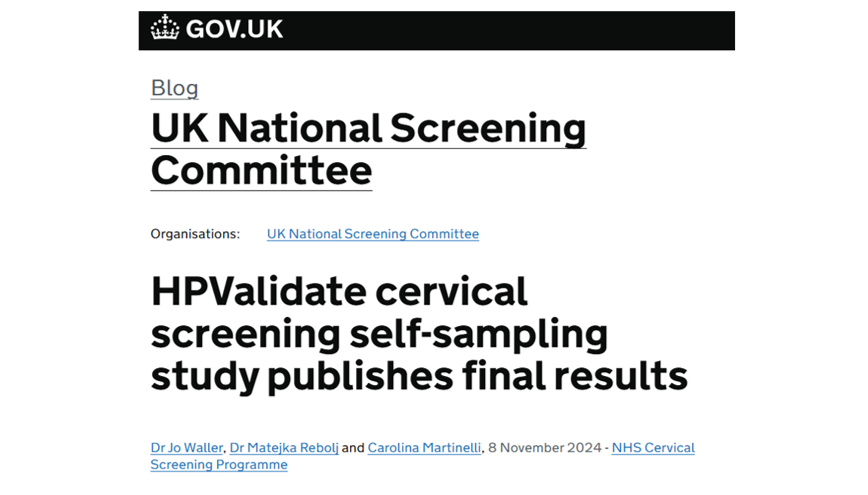DHSC announces HPValidate study cervical screening self-sampling results
The Department of Health and Social Care has announced publication of the final results from the HPValidate study, commissioned and funded by Public Health England to evaluate the accuracy and acceptability of self-sampling for HPV in comparison with standard clinician-taken cervical screening tests.

The study was commissioned in response to a 2019 UK National Screening Committee recommendation that more evidence should be collected on the potential of HPV self-sampling, to improve the NHS Cervical Screening Programme in England.
A blog co-authored by WIPH researchers Matejka Rebolj and Jo Waller summarises the results from two reports, on the accuracy of self-sampling, and the acceptability of self-collecting samples and attitudes to self-sampling as a choice in future cervical screening. Highlights from the results include:
- 4 combinations of self-collection devices and test worked well, and can now be used to help find out how self-sampling could be introduced into screening
- Most participants reported overall experience of using a self-sampling test as excellent (75%) or good (23%)
- 85% of participants said they would like to be given a choice between self-sampling or clinician screening, but 23% felt it would be difficult to choose, and 15% would worry about making a choice
- Nearly half (48%) of participants would prefer to receive a recommendation of which method they should use.
These results can inform the choice of self-sampling kits and testing platforms to use if self-sampling is offered to people who have never or rarely attended cervical screening. This under-screened group is at higher risk of HPV infection and associated disease.
The UK National Screening Committee will now open a public consultation on a recommendation that self-sampling should be offered to under-screened individuals in the cervical screening programme, and the National Institute for Health and Care Research will commission an in-service evaluation on the routine use of self-sampling in the NHS Cervical Screening Programme for all screening participants.